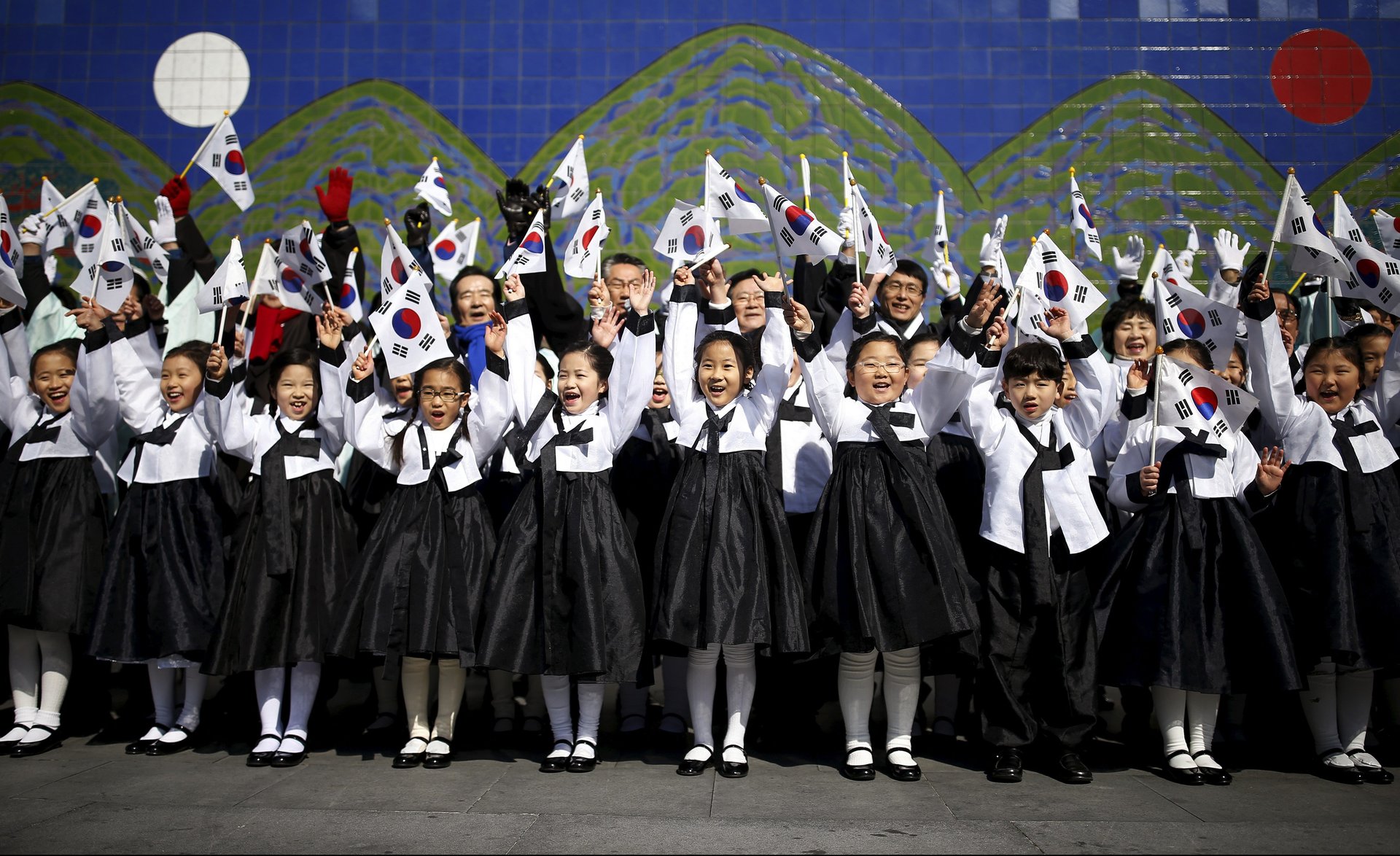Getting a divorce in South Korea now requires parents to learn about child abuse
Last December an 11-year-old girl escaped a house in Incheon, South Korea where she’d been battered and kept malnourished for several years. Days after her escape, police arrested her gambling-addicted father, his girlfriend, and another female friend, charging them with abusing and confining the child, as well as neglecting her education.


Last December an 11-year-old girl escaped a house in Incheon, South Korea where she’d been battered and kept malnourished for several years. Days after her escape, police arrested her gambling-addicted father, his girlfriend, and another female friend, charging them with abusing and confining the child, as well as neglecting her education.
Sadly, that was just one of many high-profile cases of child abuse in South Korea in recent years, prompting calls for the government to do more to address the problem. On Sunday (March 27) the Seoul Family Court said that it will require divorcing parents to receive education on the prevention of child abuse, starting in May. It explained that over 40% of abused children were from single-parent or remarried families. (Of course many are from non-divorced families, too, but only divorcing parents will face the new requirements—whether this causes a backlash remains to be seen.)
The court will soon create the educational guidelines, which will then be distributed to other courts around the nation later this year. It will halt divorce proceedings if the parents don’t take the courses, which will be mandatory whether the divorce is by agreement or by legal action. The courses will teach parents that child abuse is not just physical violence, but also negligence and abusive language—and that it could lead to criminal punishment, or to the removal of custodial rights.
Such education might be especially helpful in South Korea, where parental attitudes toward children have traditionally been harsher than in many other cultures. As writer Se-Woong Koo observes on the website Korea Exposé:
Laws can help but the next obvious step toward reducing child abuse in South Korea is to question the psychology of South Korean parenthood. In 2014, abusers in 77.2% of confirmed child abuse cases were biological parents. As long as parents are permitted to view themselves as masters of their children’s universe and exercise control bordering on psychological abuse, child abuse of more extreme kinds will not abate.
In late 2014 the nation passed laws to punish child abusers, prompted in part by two high-profile cases of women beating their stepdaughters to death. Previously, parents mistreating their children was seen largely as a private matter. “Child abuse is no longer a family matter but obviously a social crime,” president Park Geun-hye said in April of that year.
The number of confirmed child abuse cases in South Korea grew from 3,891 in 2004 to 10,024 in 2014, according to (link in Korean) the nation’s ministry of public health and welfare. Of course, the numbers might be going up because more cases are getting reported as attitudes begin to shift. And the actual numbers are likely higher, as many cases go unreported (and many reported cases are not confirmed).
South Korea’s problem with child abuse extends beyond divorced parents. Last year retailers saw a surge in sales of CCTV cameras, after the government announced plans to require all daycare centers to install the devices. That move came after video surfaced of a daycare center worker in Songdo abusing a four-year-old for not finishing her food.
In February a Seoul district court will become the nation’s first court to have a division solely dedicated to trying child abuse cases, and the national police agency said it will create a special investigations unit for child abuse.